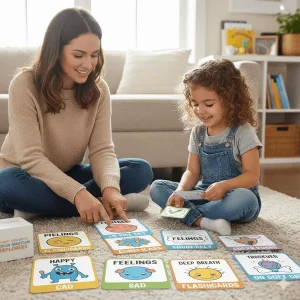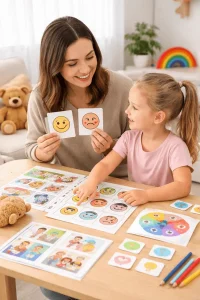What to do if he doesn’t want to get married?
By Prapoorna M
Last Updated: December 17, 2022
You are in constant dreams about marrying the love of your life, but he doesn’t seem interested. You want to have a wonderful wedding inviting all the guests, relatives, and friends to have a memorable day of life. But doesn’t he show any interest and avoid marriage talks? Are you listening to phrases like, “Do we need marriage to show my love for you?”, “Aren’t we happy like this? Marriage is a stupid idea”, “It is not necessary for us to marry because everyone is doing it”, or “A simple nuptial knot doesn’t define us”? Or maybe he must be avoiding saying that marriage is an expensive idea. Whatever the reason he says, you understand that he is reluctant to marry. But, you need not worry as there are ways to make him understand why it is important for you.
Book Relationship Counselling Now

Know what’s in there
You need to know what you are dealing with to deal with something. So, know your partner’s thoughts and ideas completely and find the basis of those thoughts. Don’t worry that he might not be in love with you at all, as he avoids the idea of marriage. You can understand that he does love you if he often talks about the future plans of having you in them. He might have reasons to avoid the talk of marriage. List out the reasons he shows and get into his shoes to understand what he meant by that. Know what his inner feelings are.
Strategies to Address Marriage Hesitancy
| Concern | Strategy for Couples | Benefits |
|---|---|---|
| Fear of Responsibility | Discuss the distribution of responsibilities openly and consider pre-marital counseling to set realistic expectations for both partners. | Reduces anxiety by clarifying expectations and reinforcing teamwork. |
| Financial Worries | Create a joint financial plan that includes goals for savings, investment, and budgeting for future expenses like a wedding, home, or children. | Builds financial confidence and partnership in planning for the future. |
| Loss of Personal Freedom | Schedule regular personal time for each partner and hobbies they enjoy individually, ensuring both partners feel supported in pursuing their interests. | Preserves individuality within the partnership, fostering a healthier relationship. |
| Past Negative Experiences | Openly discuss past experiences and how they shape perceptions of marriage. Seek therapy if needed to work through unresolved issues. | Helps to heal past wounds and build trust, setting a positive foundation for the future. |
| Concerns about Divorce | Talk about fears surrounding divorce and discuss strategies for conflict resolution and maintaining a healthy relationship. Consider pre-marital counseling for deeper insights. | Provides reassurance and tools to handle disagreements, strengthening the relationship’s resilience. |
| Belief that Marriage is Outdated | Explore the personal and cultural significance of marriage together, discussing what commitment means to each partner and if/how marriage aligns with those values. | Encourages a shared understanding and respect for each partner’s viewpoint on marriage. |
For more insights on overcoming communication barriers in relationships, consider exploring our article on coping with relationship anxiety.
What if he feels it is a burden?
Does he mean that marriage is an additional effort which brings in more responsibilities that he might not fulfil? It can happen because many feel that everything changes after marriage, and girls don’t see the man as they see him. People believe that being a husband is more responsible rather than being a boyfriend.
What can you do?
Well, as you understand that he fears responsibilities. Make him understand that you are also equally responsible for being a wife. Make a note of all the responsibilities of a man and his wife. Compare them with the responsibilities that you both have now been partners. Explain why you want a family and how you can be a good wife sharing your part of the responsibilities dutifully.
Is he afraid that he can’t have personal time?
Do you think he is afraid of losing his time, like playing cricket or football during weekends, going to movies with friends, or maybe having a long trip with his buddies now and then?
What can you do?
You can explain to him that you will take care of providing his time, except for small changes. Figure out a plan that is good for you both. Recently, we have heard in the news how a man’s friends asked for a written acceptance from his bride to allow for weekend games. Well, that’s a great idea too. You need not worry as if you are sacrificing. Because if he can have his time, you too can! You would also get time to meet your college friends or pick your favourite hobby.
Strengthen your bond and navigate disagreements effectively by reading our tips on better ways to communicate in relationships.
Is he worried about children and finances?
Till now, it is only you both, and you have managed well with two full-time incomes coming in. If married, he might be worried that you both would have children and then, being a mother, you would take a gap from your job. Most women leave their jobs and take care of the children until they are in secondary school, at least. Then, it is common that he will be the family’s only breadwinner. For men, this is a major shift of responsibility.

What can you do?
You can plan the finances. With good foresight, you can make arrangements to meet such a crisis. You may plan your career also accordingly so as not to feel overburdened. Taking care of the little one is important, being a mother. But, without any other work, there are chances of having post-partum depression. Hence, it is good for you, too, to be engaged. Speak to a family member who can support you in this regard.
Is he afraid of ending up in divorce or separation?
If your man is already divorced or has a history of divorced parents, it is common for him to feel this way. If he is already divorced, he might think that if you are his wife, you would also be like his previous wife, and you both would end up in divorce. If he usually blames her for the divorce, it is common to think like that. Also, if he had a painful childhood with divorced parents, he would feel alone. He would never want to get married or have children for life.
What can you do?
You must understand that divorce never happens because of a single person unless they are severely mentally ill. His first wife might have been good, but due to the mishandling of the situations between them or probably some other reasons, their relationship ended up in divorce. Or, if it is his parents’ divorce, they might have their reasons, and he has nothing to do with it.
For any of such cases, it is good to give him some time and make him slowly understand that you are very cooperative and understanding. He should know that your relationship can never be compared with those who got divorced, as you are different and capable.
Learn more about the benefits of pre-marital counseling and how it can prepare you for a lifelong commitment in our detailed article on the significance and uses of premarital counseling.
Does he think that marriage is out of fashion?
You might get an entirely different and trendy problem if he thinks that “living in relationships” is the trend but not marriage! There can be such ideas where your boyfriend always loves to follow the trend.
What can you do?
Try to explain that everything doesn’t have to be trendy, and trends do change. Tell him how couples grow old together. At the same time, check if he is really into you. Ask him if he is considering growing old with you or not. Explain to him why marriage means so much to you and you don’t want to give it up. Make him understand that you are worth a lifelong promise!
Most importantly, you should never blackmail or persuade anyone to get married. If you feel like you can’t convince him, the marriage will be ill-fated. You must understand that many happy relationships last into old age, even without a prior marriage. So, think openly and communicate effectively for a happy long-term relationship.
It is necessary for a couple to discuss the issues between them. If they cannot sort it out on their own, it is healthy to take the advice of a professional. A relationship counsellor can help you to get through such tough situations. If you are worried whether how it would be if you two could marry and what difficulties might arise that you both should be ready to solve, you can opt for pre-marital counselling. Pre-marital counselling helps you understand each other’s love language and communicate well.
Comparison of Relationship Dynamics
| Aspect | Married Couples | Couples in Long-term Partnerships without Marriage |
|---|---|---|
| Legal and Financial Benefits | Enjoy legal recognition, which includes tax benefits, inheritance rights, and health care decision-making privileges. | May need to take additional legal steps to secure some rights typically automatic in marriage, like property rights or medical decision-making. |
| Social Recognition | Marriage is widely recognized and celebrated socially, offering a formal acknowledgment of the relationship. | Relationships may not receive the same level of formal social recognition, which can affect perceptions and treatment by others. |
| Personal Freedom | May face perceptions of reduced personal freedom due to traditional marital expectations and legal ties. | Often viewed as having more personal freedom due to the lack of formal legal commitments, allowing for potentially more flexible relationship dynamics. |
| Commitment Level | Marriage is traditionally seen as a higher level of commitment, reinforced by legal and social frameworks. | Commitment is defined by the couple’s personal agreement and understanding, without the legal bindings. This doesn’t imply less commitment but a different form of it. |
| Children and Parenting | Legal parentage and rights are automatically established for both parents in many jurisdictions. | Non-married couples may need to take additional legal steps to establish parentage and rights for both partners. |
To understand how wellness hubs can support your journey as a couple, explore our comprehensive guide on the importance of relationship counseling.
Conclusion:
Navigating a partner’s reluctance towards marriage requires patience, understanding, and open dialogue. It’s vital to explore the reasons behind their hesitation, whether due to fears of responsibility, financial concerns, past traumas, or questioning the institution of marriage itself. Addressing these issues together and considering relationship counselling or pre-marital counselling can help both partners understand each other better and strengthen their bond. This approach emphasizes the importance of mutual support, shared responsibilities, and planning for the future while maintaining personal freedoms and goals.
Wellness hubs play a crucial role in supporting couples through these challenges by providing access to counselling, financial planning, and community support. These resources are invaluable for couples working to build a strong foundation for their relationship. By leveraging such support systems, couples can navigate the complexities of commitment more effectively, ensuring a healthier, more communicative, and supportive partnership.
Frequently Asked Questions:
1. Why might my partner be hesitant to get married?
Hesitation towards marriage can arise from various concerns such as the fear of additional responsibilities, anxiety over financial stability, a desire to maintain personal freedom, or past negative experiences with relationships, including divorce or parental separation. Understanding the root of these concerns through open and empathetic communication is essential for addressing them constructively.
2. How can we constructively address reluctance towards marriage in our relationship?
Open dialogue about each other’s fears, desires, and expectations is crucial. Consider exploring relationship counseling or pre-marital counseling to gain deeper insights into your partnership, learn effective communication strategies, and address any underlying issues contributing to the hesitation.
3. What role do wellness hubs play in offering guidance for relationships?
Wellness hubs provide a wealth of resources, including access to professional counseling, financial planning assistance, and supportive community networks. These services are invaluable for couples looking to navigate relationship challenges, offering tools and support to build a stronger, more understanding partnership.
4. Is experiencing doubts about marriage normal?
Absolutely. Many individuals experience doubts or concerns about marriage due to fears about the future, changes in personal freedom, or concerns about financial responsibilities. Openly discussing these doubts with your partner can lead to mutual understanding and reassurance.
5. How can we plan a future together despite reservations about marriage?
Planning a future together involves balancing individual and shared goals and dreams. Discussing your aspirations, fears, and practical matters such as finances openly can help. Pre-marital or couples counseling can also provide valuable strategies for navigating your future together harmoniously.
6. Can a relationship be fulfilling and successful without marriage?
Yes, many couples maintain happy, fulfilling relationships without marrying. The key to a successful relationship lies in mutual respect, love, understanding, and communication, rather than the formal commitment of marriage.
7. How does pre-marital counseling benefit couples?
Pre-marital counseling offers couples the opportunity to explore their communication styles, understand each other’s love languages, and develop strategies for effective conflict resolution. This preparation can lay a strong foundation for a lasting, supportive relationship.
8. What if our views on marriage differ significantly?
When views on marriage diverge significantly, it’s important to discuss whether a compromise can be reached or if each partner can respect the other’s perspective without resentment. In some cases, seeking external perspectives through counseling can offer new insights and paths to understanding.
9. What steps can we take if one partner desires marriage but the other does not?
Begin with open, non-judgmental discussions about each partner’s views on marriage and their reasons for those views. Seek to understand without persuading or pressuring. Exploring counseling together can also provide a neutral space to discuss these differences and find a path forward that respects both partners’ needs.
10. How can we maintain a strong relationship despite disagreements about marriage?
Focus on the strengths of your relationship, such as shared interests, love, and respect for each other. Continuously work on communication, compromise, and understanding. Embrace the idea that a strong relationship is built on more than the question of marriage and involves ongoing effort and mutual growth.
About the Author:
Prapoorna Mangalampalli
M.Sc., M.A., (Dual Masters in Psychology & English) – Counselor (6+ years of experience)
Prapoorna armed with a passionate dedication fueled by dual Master’s degrees in Psychology and English, Prapoorna sheds light on and elevates human experiences. Over 6+ years of experience fuel her insightful approach to counseling, offering profound empathy and guidance across diverse areas like online, marital, relationship, child, family, and career counseling.
At Wellness Hub, she thrives in a team environment that values innovation, compassion, and achieving results for their clients.
Connect with Prapoorna to learn how she can help you or your loved one find their voice and build a brighter future.
Book your Free Consultation Today
Parent/Caregiver Info:
Client’s Details:
* Error Message









